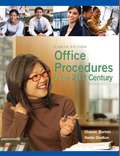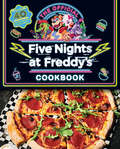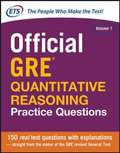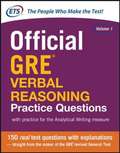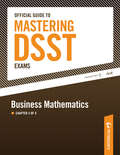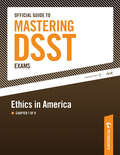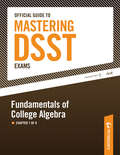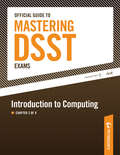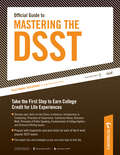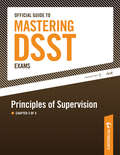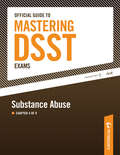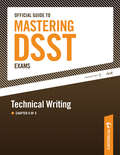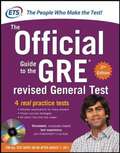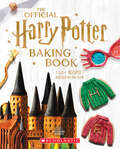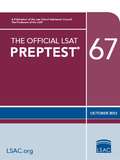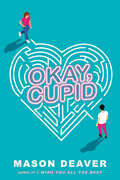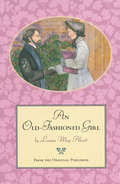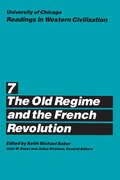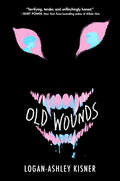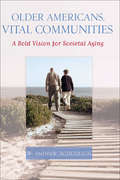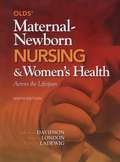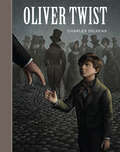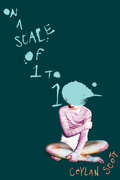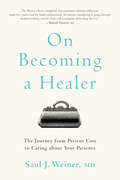- Table View
- List View
Office Procedures for the 21st Century (Eighth Edition)
by Sharon Burton Nelda SheltonThis market-leading book helps readers acquire the office and interpersonal skills needed to excel in any organization. Its proven approach means students acquire these skills quickly and chapters introduce a range of topics including file management, time management, employment skills, basic financial forms, problem solving, human relations and more! This edition features more on communication, references Microsoft Office 2007, and expands the office simulation to include both functional and cumulative exercises. New chapters address the medical and legal office and new assignments develop employer-ready skills. New! Updated content includes topics such as: Current office trends The green office Office politics e-Portfolios Displaying good manners Ordering supplies online Visitors and language barriers Complaining customers Steps for keying minutes Steps for PowerPoint 2007 and more!
The Official Five Nights at Freddy's Cookbook (Five Nights at Freddy's)
by Scott Cawthon Rob MorrisThe one and only OFFICIAL Five Nights at Freddy's Cookbook, an AFK book, with over 40 recipes inspired by the hit games. Delight in over forty tasty recipes inspired by the Five Nights at Freddy's games, with gorgeous, eye-popping photography! From Freddy Fazbear's Pepperoni X-Press and Chica's Ultimate Thai Chicken Burger, to Foxy's Fruity Cove Coolor and El Chip's Fully Loaded Tortillas, the official Five Nights at Freddy's Cookbook is packed with mouthwatering recipes that are hauntingly delicious. <P><P><i>Advisory: Bookshare has learned that this book offers only partial accessibility. We have kept it in the collection because it is useful for some of our members. Benetech is actively working on projects to improve accessibility issues such as these.</i> <p> <b>New York Times Bestseller</b>
Official GRE Quantitative Reasoning: Practice Questions, Volume 1
by Educational Testing ServiceThis book provides important information about the Quantitative Reasoning measure of the GRE revised General Test, including the knowledge and skills that are assessed and the types of questions that appear.
Official GRE Verbal Reasoning Practice Questions (Volume #1)
by Educational Testing Service Staff150 REAL GRE Verbal Reasoning questions--direct from the test maker! The best way to prepare for the Verbal Reasoning measure of the GRE revised General Test is with real GRE test questions--and that is what you will find in this unique guide! Specially created for you by ETS, it offers 150 actual GRE Verbal Reasoning questions with complete explanations. Plus, this guide includes an authoritative overview of the GRE Analytical Writing measure, completewith sample writing tasks and scored sample responses. Only ETS can show you exactly what to expect on the test. So for in-depth practice and accurate, reliable test preparation for the GRE Verbal Reasoning measure, this guide is your best choice! Look inside to find: Real GRE Verbal Reasoning test questions arranged by question type and difficulty level--to help you build your test-taking skills. Plus, mixed practice sets. Answers and explanations for every question! ETS's own test-taking strategies: Valuable hints and tips that can help you do your best on the test. Official information on the GRE Verbal Reasoning measure: The facts about test content, structure, and scoring--straight from ETS. Plus: An overview of the GRE Analytical Writing measure with writing strategies, sample writing tasks, and sample scored essays.
Official Guide to Mastering DSST Exams--Business Mathematics: Chapter 5 of 8
by Peterson's"A part of Peterson's Official Guide to Mastering the DSST Exams--Business Mathematics helps nontraditional students earn college credits for life and learning experiences, with a diagnostic test, subject review, and post-test (with detailed answer explanations) for this popular DSST exam: Business Mathematics. Topics covered include algebraic concepts, statistics, business applications, and financial mathematics. Peterson's Official Guide to Mastering the DSST Exams is the only prep guide endorsed by PrometricTM, the DSST program provider, which found this study guide to be an excellent reflection of the content of the respective DSST tests."
Official Guide to Mastering DSST Exams--Ethics in America: Chapter 1 of 8
by Peterson's"A part of Peterson's Official Guide to Mastering the DSST Exams--Ethics in America helps nontraditional students earn college credits for life and learning experiences, with a diagnostic test, subject review, and post-test (with detailed answer explanations) for this popular DSST exam: Ethics in America. Topics include ethical traditions, religious traditions, natural law theory, political theories, transcendentalism idealism, moral egoism, feminist ethics, current ethical issues, and more. Peterson's Official Guide to Mastering the DSST Exams is the only prep guide endorsed by PrometricTM, the DSST program provider, which found this study guide to be an excellent reflection of the content of the respective DSST tests."
Official Guide to Mastering DSST Exams--Fundamentals of College Algebra: Chapter 7 of 8
by Peterson's"A part of Peterson's Official Guide to Mastering the DSST Exams--Fundamentals of College Algebra helps nontraditional students earn college credits for life and learning experiences, with a diagnostic test, subject review, and post-test (with detailed answer explanations) for this popular DSST exam: Fundamentals of College Algebra. Topics include fundamental algebraic operations, rational expressions, exponential and radical expressions, linear equations, absolute value equations and inequalities, quadratic equations and inequalities, complex numbers, functions, two-dimensional graphing, and more. Peterson's Official Guide to Mastering the DSST Exams is the only prep guide endorsed by PrometricTM, the DSST program provider, which found this study guide to be an excellent reflection of the content of the respective DSST tests."
Official Guide to Mastering DSST Exams--Introduction to Computing: Chapter 2 of 8
by Peterson's"A part of Peterson's Official Guide to Mastering the DSST Exams--Introduction to Computing helps nontraditional students earn college credits for life and learning experiences, with a diagnostic test, subject review, and post-test (with detailed answer explanations) for this popular DSST exam: Introduction to Computing. Topics include computers: history and the basics; software: system and application; software copyrights and licenses; software development; network communication, and security; and more. Peterson's Official Guide to Mastering the DSST Exams is the only prep guide endorsed by PrometricTM, the DSST program provider, which found this study guide to be an excellent reflection of the content of the respective DSST tests."
Official Guide to Mastering DSST Exams--Principles of Public Speaking: Chapter 6 of 8
by Peterson's"A part of Peterson's Official Guide to Mastering the DSST Exams--Principles of Public Speaking helps nontraditional students earn college credits for life and learning experiences, with a diagnostic test, subject review, and post-test (with detailed answer explanations) for this popular DSST exam. Topics include ethical considerations in public speaking, audience analysis and adaptation, speech topics and purposes, research and organization; criticizing and evaluating speeches, and more. Peterson's Official Guide to Mastering the DSST Exams is the only prep guide endorsed by PrometricTM, the DSST program provider, which found this study guide to be an excellent reflection of the content of the respective DSST tests."
Official Guide to Mastering DSST Exams--Principles of Supervision: Chapter 3 of 8
by Peterson's"A part of Peterson's Official Guide to Mastering the DSST Exams--Principles of Supervision helps nontraditional students earn college credits for life and learning experiences, with a diagnostic test, subject review, and post-test (with detailed answer explanations) for this popular DSST exam: Principles of Supervision. Topics include management levels, skill requirements, managerial roles, business ethics, corporate social responsibility, organizational environment, management functions, and more. Peterson's Official Guide to Mastering the DSST Exams is the only prep guide endorsed by PrometricTM, the DSST program provider, which found this study guide to be an excellent reflection of the content of the respective DSST tests."
Official Guide to Mastering DSST Exams--Substance Abuse: Chapter 4 of 8
by Peterson's"A part of Peterson's Official Guide to Mastering the DSST Exams--Substance Abuse helps nontraditional students earn college credits for life and learning experiences, with a diagnostic test, subject review, and post-test (with detailed answer explanations) for this popular DSST exam: Substance Abuse. Topics include drugs: classifications and effects; alcohol: history, effects, and dependency; sedative hypnotics; inhalants; stimulants: cocaine and amphetamines; and more. Peterson's Official Guide to Mastering the DSST Exams is the only prep guide endorsed by PrometricTM, the DSST program provider, which found this study guide to be an excellent reflection of the content of the respective DSST tests."
Official Guide to Mastering DSST Exams--Technical Writing: Chapter 8 of 8
by Peterson's"A part of Peterson's Official Guide to Mastering the DSST Exams--Technical Writing helps nontraditional students earn college credits for life and learning experiences, with a diagnostic test, subject review, and post-test (with detailed answer explanations) for this popular DSST exam: Technical Writing. Topics include progress, feasibility, and laboratory reports; correspondence: memos, letters, and resumes; organizing technical content, technical editing, and much more. Peterson's Official Guide to Mastering the DSST Exams is the only prep guide endorsed by PrometricTM, the DSST program provider, which found this study guide to be an excellent reflection of the content of the respective DSST tests."
The Official Guide to the GRE
by Educational Testing ServiceGet the only official guide to the GRE® revised General Test that comes straight from the test makers! If you're looking for the best, most authoritative guide to the GRE revised General Test, you've found it! The Official Guide to the GRE revised General Test is the only GRE guide specially created by ETS--the people who actually make the test. It's packed with everything you need to do your best on the test--and move toward your graduate or business school degree. Only ETS can show you exactly what to expect on the test, tell you precisely how the test is scored, and give you hundreds of authentic test questions for practice! That makes this guide your most reliable and accurate source for everything you need to know about the GRE revised General Test. No other guide to the GRE revised General Test gives you: Four complete, real tests--two in the book and two on CD-ROM Hundreds of authentic test questions--so you can study with the real thing In-depth descriptions of the Verbal Reasoning and Quantitative Reasoning measures plus valuable tips for answering each question type Detailed overview of the two types of Analytical Writing essay tasks including scored sample responses and actual raters' comments Everything you need to know about the test, straight from the test makers!
Official Harry Potter Baking Book (40+ Recipes Inspired by the Films): 40+ Recipes Inspired by the Films
by Joanna Farrow#1 NEW YORK TIMES BESTSELLER! Bake your way through Hogwarts School of Witchcraft and Wizardry! Inspired by the films, this is the ONE and ONLY official Harry Potter cookbook! Packed with over 40 recipes and gorgeous, eye-catching photography, this baking cookbook is a must-have for every Harry Potter fan.Delight in 43 tasty recipes inspired by the Harry Potter films! From Pumpkin Patch Pies to Owl Muffins, Luna's Spectrespecs Cookies to Hogwarts Gingerbread, The Official Harry Potter Baking Cookbook is packed with mouthwatering recipes that will, dare we say, ... ensnare the senses.Host a Great Hall-inspired feast for your friends or delight in a portion for one. Includes recipes for all kinds of delicious baked goods, as well as nutritional and dietary information. This baking cookbook is great for everyone and includes gluten-free, vegetarian, and vegan recipes as well!
The Official LSAT PrepTest 67
by Law School Admission CouncilThe Law School Admission Test is a holf-day standardized test required for admission to all ABA-approved law schools, most Canadian law schools, and many other law schools. It consists
Offline
by Donna CoonerIn this e-book original, acclaimed author Donna Cooner spins a timely and gripping story of how we live our lives on -- and off -- social media.Annie Webb is constantly online. She loves following influencer accounts, DM'ing with her two best friends, Luna and Caitlin, and posting selfies with her adorable boyfriend, Jameson.Then Jameson breaks up with Annie -- online. The public humiliation is immediate and intense, and Annie is overwhelmed by the cruel comments that pour in. To help Annie cope, Luna and Caitlin make a plan: the three of them will stay off social media for a month. No posting. No scrolling. No cheating.But unplugging is much harder than they thought. And when the rest of their school finds out about their offline challenge, can the three girls keep their vow -- and their friendship?
Okay, Cupid
by Mason DeaverFrom the bestselling author of I WISH YOU ALL THE BEST, the story of a cupid who thinks they know everything about love... until they fall in love themselves.As a cupid, Jude thinks they understand love a little bit more than the average human. It makes sense -- Jude's been studying love their whole teen life. And, yes, there have been some bumps in the road, and they're currently on probation for doing something that they absolutely, definitely shouldn't have done... but they're ready to prove they can make matches without ever getting involved.Only... Jude's next assignment isn't about setting up two adults. No, this time Jude has to go to high school, with kids their own age. And the assignment is a tough one: two best friends who are meant to be more than just best friends... but who aren't currently speaking to each other after a huge falling out. Jude thinks they've got this one all under control, and that they won't get involved whatsoever.Which proves that maybe Jude hasn't learned the first lesson of humans and love ... It’s complicated.
An Old-Fashioned Girl: Large Print
by Louisa May Alcott1897. Louisa May Alcott, the author of Little Women, is universally recognized as the greatest and most popular story teller for children in her generation. She has known the way to the hearts of young people, not only in her own class, or even country, but in every condition of life, and in many foreign lands. An Old-Fashioned Girl is about Polly's friendship with the wealthy Shaws of Boston and how she helps them to build a new life when they fall upon hard times and in turn learns the truth about the relationship between happiness and riches. See other titles by this author available from Kessinger Publishing.
The Old Regime and the French Revolution (Readings in Western Civilization, Volume #7)
by John W. Boyer Julius KirshnerThe University of Chicago Readings in Western Civilization (nine volumes) makes available to students and teachers a unique selection of primary documents, many in new translations. These readings, prepared for the highly praised Western civilization sequence at the University of Chicago, were chosen by an outstanding group of scholars whose experience teaching that course spans almost four decades. Each volume includes rarely anthologized selections as well as standard, more familiar texts; a bibliography of recommended parallel readings; and introductions providing background for the selections. Beginning with Periclean Athens and concluding with twentieth-century Europe, these source materials enable teachers and students to explore a variety of critical approaches to important events and themes in Western history. Individual volumes provide essential background reading for courses covering specific eras and periods. The complete nine-volume series is ideal for general courses in history and Western civilization sequences.
Old Wounds
by Logan-Ashley KisnerTwo transgender teens end up in a small, isolated town, where they must escape the locals who plan to sacrifice one of them to an ancient monster that only eats girls. A pulse-pounding thriller perfect for fans of Midsommar and Hell Followed with Us!Erin and Max are two transgender teens trying to get to California. Max is desperate to finally transition, and Erin is longing to understand why she&’s on this trip to begin with. The last she spoke to Max was when he suddenly broke up with her two years ago.But when they find themselves stranded in the middle of the woods in a small Kentucky town, they realize they have much bigger problems. The locals need a female sacrifice for the monster that lives in the woods—according to them, the sun won&’t come up again until the monster eats a girl . . . and it only eats what it kills. Fighting back is futile; no one selected as the offering has ever survived the night. When the two strangers show up, the locals believe they have the perfect candidate. The irony of the situation is almost too much to fathom.The thing is, the locals don&’t know who they just trapped as their sacrifice. They don&’t know Erin&’s and Max&’s secrets, which could be a death sentence on a good day. And the monster that lives in their woods has never faced prey who have already fought so hard to live.
Older Americans, Vital Communities: A Bold Vision for Societal Aging
by W. Andrew AchenbaumThis thought-provoking work grapples with the vast range of issues associated with the aging population and challenges people of all ages to think more boldly and more creatively about the relationship between older Americans and their communities. W. Andrew Achenbaum begins by exploring the demographics of our aging society and its effect on employment and markets, education, health care, religion, and political action. Drawing on history, literature, and philosophy, Achenbaum focuses on the way health care and increases in life expectancy have transformed late life from a phase characterized by illness, frailty, and debility to one of vitality, productivity, and spirituality. He shows how this transformation of aging is beginning to be felt in programs and policies for aging persons, as communities focus more effort on lifelong learning and extensive civic engagement. Concerned that his own undergraduate students are too focused on the immediate future, Achenbaum encourages young people to consider their place in life's social and chronological trajectory. He calls on baby boomers to create institutional structures that promote productive, vital growth for the common good, and he invites people of all ages to think more boldly about what they will do with the long lives ahead of them.
Olds' Maternal-Newborn Nursing & Women's Health Across the Lifespan (9th Edition)
by Michele R. Davidson Marcia L. London Patricia A. Wieland LadewigThis family-focused text that provides comprehensive coverage of maternal-newborn nursing and women’s health with special attention to evidence-based practice, cultural competence, critical thinking, professionalism, patient education, and home/community care. Accurate, readable, personal, and engaging, OLDS' MATERNAL-NEWBORN NURSING & WOMEN'S HEALTH ACROSS THE LIFESPAN, 9/e reflects a deep understanding of pregnancy and birth as normal life processes, and of family members as partners in care. This edition includes a deeper discussion of childbirth at risk; four new nursing care plans; updated coverage of contraception, complementary/alternative therapies, and much more. New teaching features include Professionalism in Practice and Health Promotion Education boxes, Clinical Judgment case studies, and Critical Thinking questions. This edition also aligns more closely with AACN’s Essentials of Baccalaureate Education for Professional Nursing Practice.
Oliver Twist (Union Square Kids Unabridged Classics)
by Charles DickensThanks to its colorful cast of characters and gritty portrayal of street life in Victorian London, Dickens’ Oliver Twist has captured readers’ hearts for more than 150 years. Today’s children will love it too. Oliver, a poor orphan, escapes the miserable workhouse where he was born only to fall into the clutches of a band of pickpockets led by the odious Fagin. Yet no amount of cruelty can destroy his purity…and through his goodness, he finds salvation.
On a Scale of One to Ten (Chicken House Novels Ser.)
by Ceylan ScottFor fans of John Green and Ned Vizzini, a heart-wrenching and witty novel about a girl with Borderline Personality Disorder who finds a way to live with the guilt of her past.Tamar is admitted to Lime Grove, a psychiatric hospital for teenagers. Lime Grove is home to a number of teenagers with a variety of problems: anorexia, bipolar disorder, behavior issues. Tamar will come to know them all very well. But there's one question she can't... won't answer: What happened to her friend Iris? As Tamar's emotional angst becomes more and more clear to her, she'll have to figure out a path to forgiveness. A shocking, moving, and darkly funny depiction of life in a psychiatric world. A stunning journey of one girl's mental illness and the redemptive power of truth and healing.
On Becoming a Healer: The Journey from Patient Care to Caring about Your Patients
by Saul J. WeinerAn invaluable guide to becoming a competent and compassionate physician.Medical students and physicians-in-training embark on a long journey that, although steeped in scientific learning and technical skill building, includes little guidance on the emotional and interpersonal dimensions of becoming a healer. Written for anyone in the health care community who hopes to grow emotionally and cognitively in the way they interact with patients, On Becoming a Healer explains how to foster doctor-patient relationships that are mutually nourishing. Dr. Saul J. Weiner, a physician-educator, argues that joy in medicine requires more than idealistic aspirations—it demands a capacity to see past the "otherness" that separates the well from the sick, the professional in a white coat from the disheveled patient in a hospital gown. Weiner scrutinizes the medical school indoctrination process and explains how it molds the physician's mindset into that of a task completer rather than a thoughtful professional. Taking a personal approach, Weiner describes his own journey to becoming an internist and pediatrician while offering concrete advice on how to take stock of your current development as a physician, how to openly and fully engage with patients, and how to establish clear boundaries that help defuse emotionally charged situations. Readers will learn how to counter judgmentalism, how to make medical decisions that take into account the whole patient, and how to incorporate the organizing principle of healing into their practice. Each chapter ends with questions for reflection and discussion to help personalize the lessons for individual learners.
